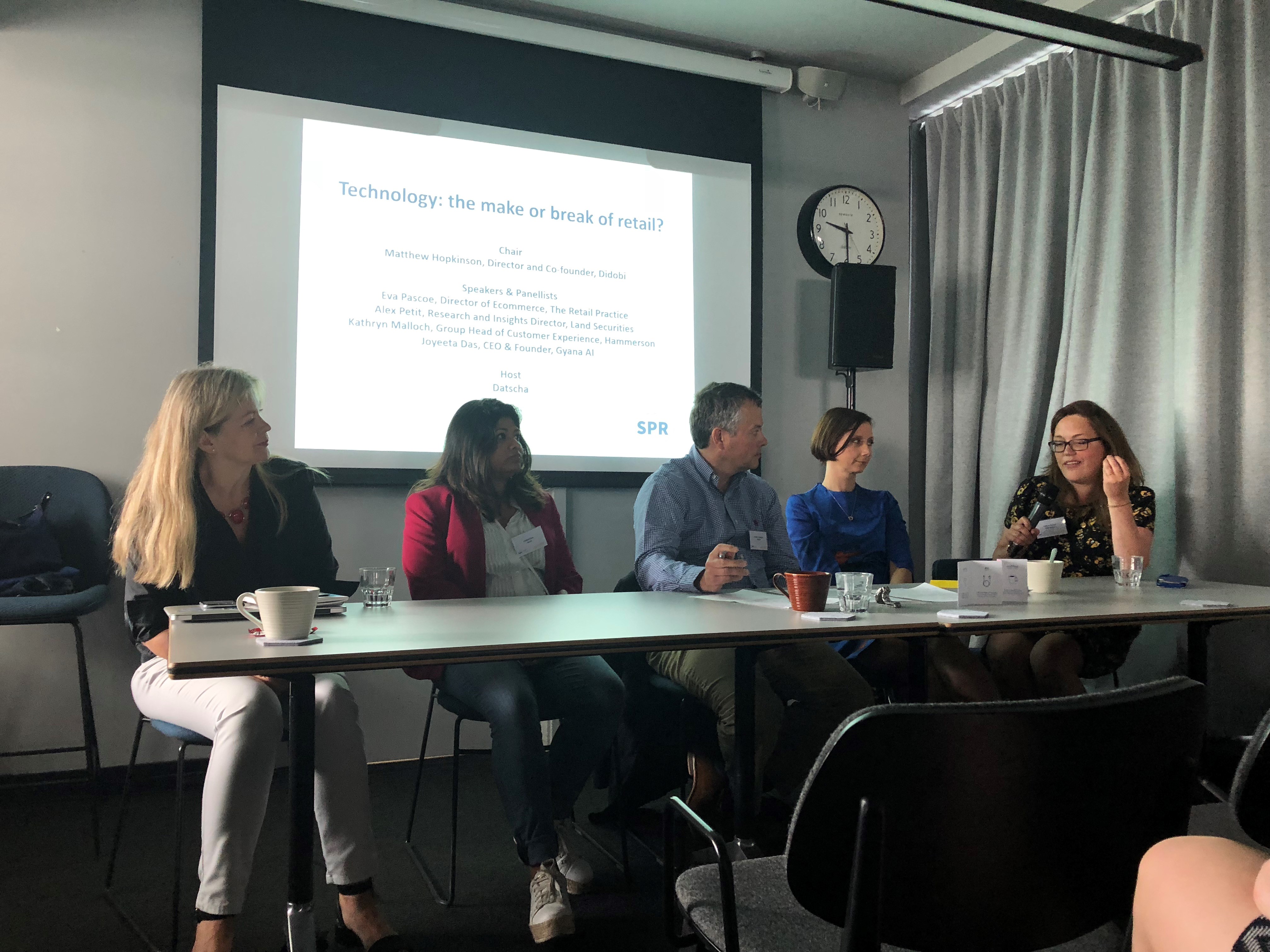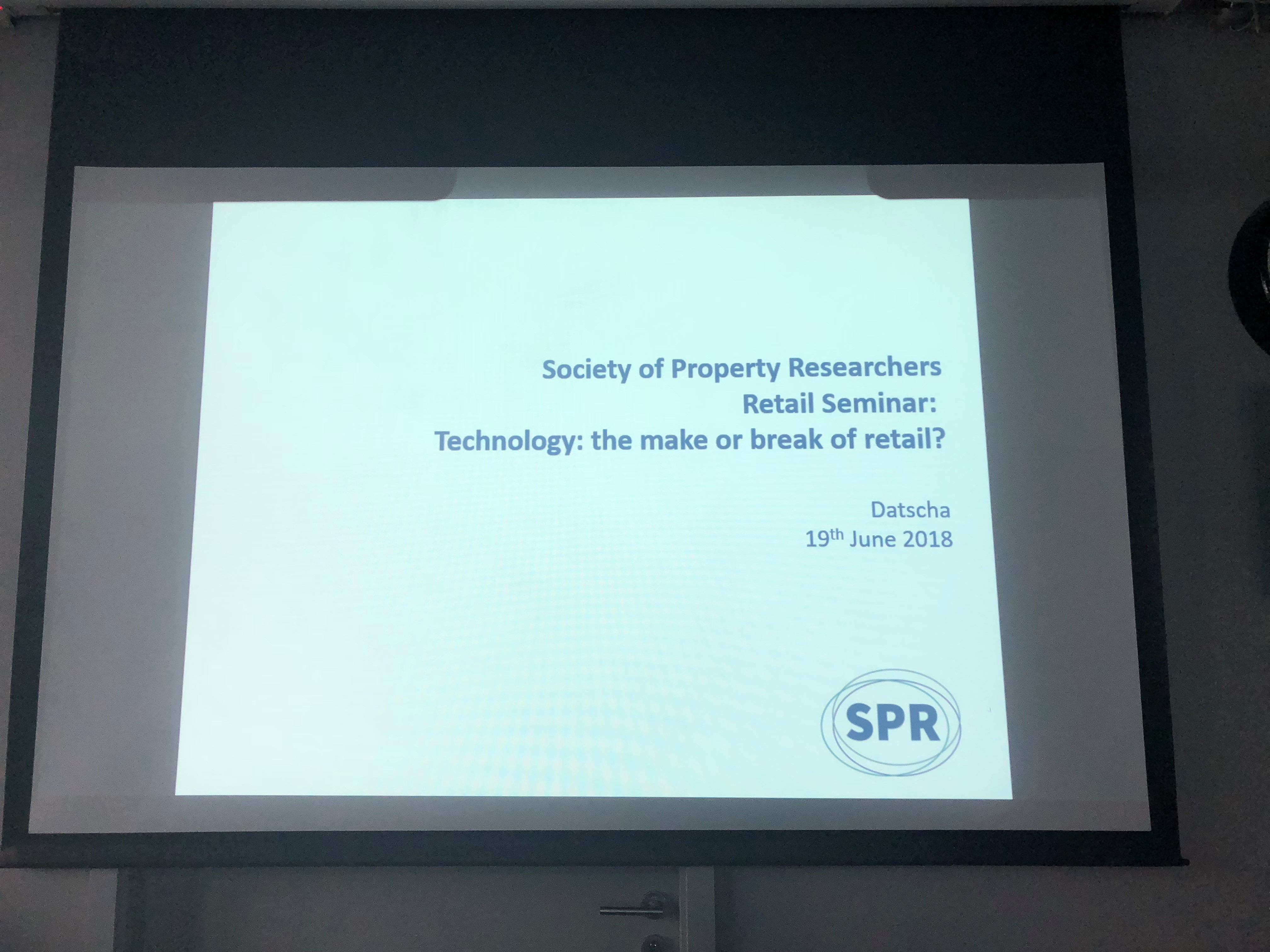Joint SPR / UKPA Retail Seminar: Technology, the make or break of retail? 19 June 2018, Datscha
Retail real estate can make technology its friend


Technology has given shoppers much more power to choose what they want to buy and where to buy it. But how can retailers and their landlords themselves use technology to keep these shoppers satisfied?
For Kathryn Malloch, Group Head of Customer Experience at Hammerson, today’s shoppers – especially web-nurtured millennials – are promiscuous: They lack brand loyalty but demand quality. Shopping centre owners must keep up with them, for instance by enticing specialist retailers with a strong customer focus. And technologies like Hammerson’s Plus App – a mobile personal shopping assistant that uses beacon technology – can help work out what they’re looking for.
Many consumers now see physical shops as expensive, inconvenient and slow to change, according to Eva Pascoe, Director of Ecommerce at The Retail Practice. This means retailers must use technology to boost customer interest. As a good example, Charlotte Tilbury have embraced augmented reality in their stores, allowing shoppers to digitally enhance their photos with a choice of cosmetics before buying. Data centres may be the new shopping malls, but physical retailers can use technology to engage with the customer better.
Alexandra Petit, Research and Insights Director at Land Securities, agreed that property owners need to see stores as part of the overall retail experience, a stage on which brands can engage with shoppers and learn from them. This is typified by American retailer Nordstrom, whose stores are there just to provide a shop window for buying online. Joyeeta Das, CEO & Founder of data consultants Gyana AI stressed that the challenge for real estate is to “hyperpersonalise” space, as this is what the web does in virtual space. Only data will allow you to do this, but you have to learn the right lessons from it.
In the panel discussion, moderated by Matthew Hopkinson, Director and Co-founder of Didobi, there was agreement that market participants tend to be long on data but short on insight. The tactical use of data is good, said Pascoe, but the strategic use is poor. Asked about the prospects for department stores in light of the travails of House of Fraser and others, the consensus was it all depends on the model: few would bet against John Lewis being around in 10 years’ time, given their understanding of their audience, level of service and effective integration of online.
Tim Horsey